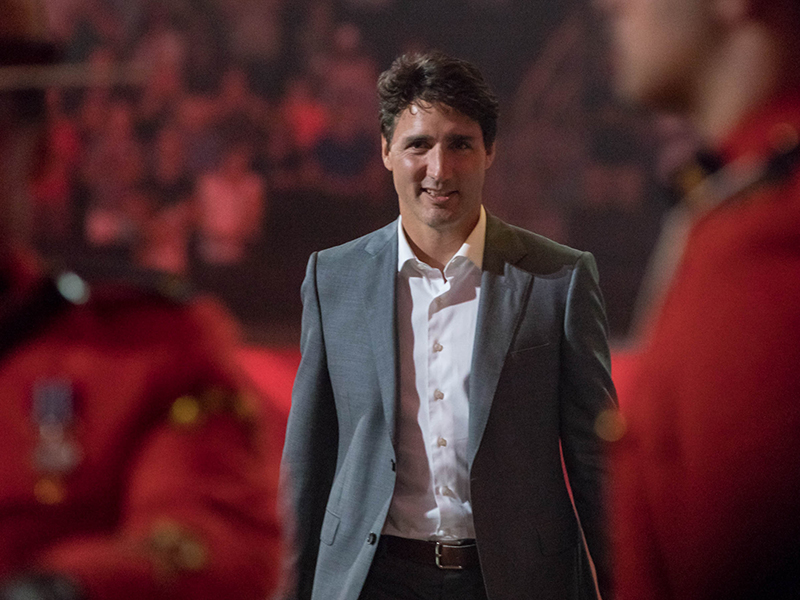B’nai Brith Canada called on Prime Minister Justin Trudeau to condemn attempts to glorify Nazi sympathizers and distort history, prior to his trip to Latvia and the NATO summit in Brussels.
Trudeau was in Latvia on July 10, where he met with the prime minister and president of the Baltic nation, took part in a wreath-laying ceremony at a monument in the capital, Riga, and visited troops at a military base. He went on to attend two days of NATO meetings in Brussels.
In an open letter to Trudeau prior to his departure, B’nai Brith said it was offering the prime minister “an opportunity to articulate the concerns of Canada’s Jewish community over developments in Europe.”
The organization asked Trudeau to convey to the leaders of NATO and Latvia the need to “condemn all attempts to glorify Nazi sympathizers or collaborators, whether military units, fascist organizations or individuals.”
READ: HOW FAR APART ARE TRUDEAU AND HARPER?
It said it was very concerned with the rise of extreme right forces in Europe, “which both draws upon and fuels efforts to cast a different historical light on the role of some fascist organizations or military units during World War II.”
Parades and demonstrations in European cities “glorify or gloss over the role of military units known to have supported or sympathized with the Nazis. This includes worrying signs in the three Baltic countries,” B’nai Brith stated.
It cited “widespread and credible reporting” of parades that glorify the Latvian Legion, which included two Waffen Grenadier divisions of the SS.
“We must challenge all those who distort the historical record on governments, military units or organizations that fought with, supported or sympathized with the Nazis during World War II. This includes government leaders who acquiesce in, or fail to condemn, a process of Nazi glorification that amounts to Holocaust distortion,” B’nai Brith wrote.
Canada should be using its influence to challenge this trend “and convince its allies to join in a denunciation of this development.”
